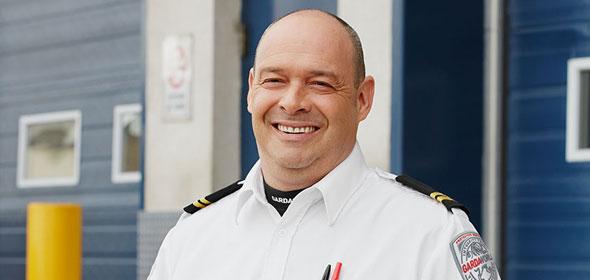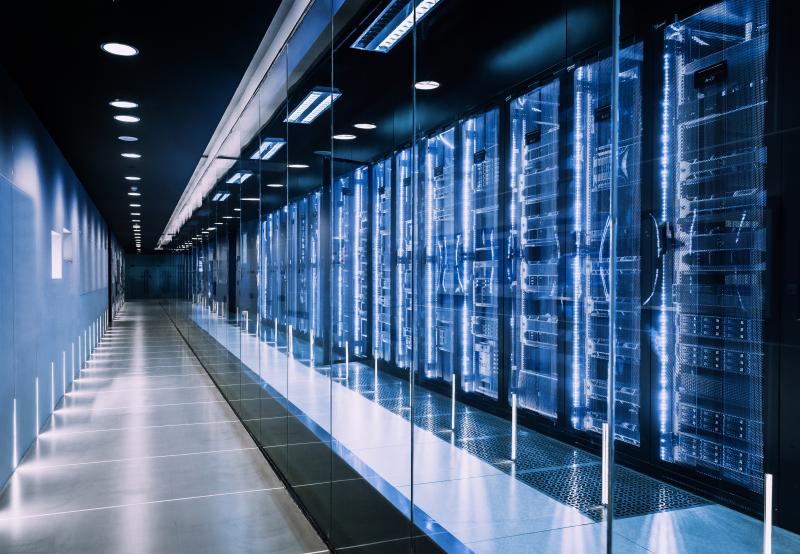
When I’m asked to describe the value that trained security professionals can bring to the businesses they serve, I say, “It’s doing small, everyday things right, to help keep big things from going wrong.”
If something does go wrong, it’s both human nature and good practice to review the steps that led to it, in order to fix whatever critical misstep (or, sometimes, omission) occurred. While we can call the result of this process “progress,” it unfortunately comes too often at the cost of property loss or human injury.
NOTE: Marc-André Aubé is President and Chief Operating Officer of GardaWorld Protective Services and Aviation Services, whose primary role is instilling operational excellence and accountability among his team of 22,000 Canadian security professionals.
Probably the world’s biggest example of this was 9/11, which led to an enormous review of airport security procedures. In turn, this resulted in the stepped-up airport security that continues to this day and likely forever.
But what’s odd about destiny is we can never know the impact of what doesn’t happen. The old proverb that an ounce of prevention is worth a pound of cure is certainly true enough, but in some cases, an ounce of prevention might be worth a thousand or even a million pounds of cure. That certainly would’ve been the case if the 9/11 hijackers had been caught before they committed their horrific acts.
All this is to say that, without clairvoyance, it’s next to impossible to assess the value of prevention. So how should the work of security professionals be valued by businesses that employ them? Here are three ways:
-
Friendliness: This attribute sounds benign, but it speaks broadly to a person’s self-respect and people skills. The former reflects itself in how well the individual dresses. Is their personal hygiene up to par? Are their uniforms clean and pressed?
-
Regarding people skills, some environments that require human guards can be isolated and lack regular interaction with people, while others, such as those in busy reception areas of office buildings, can have high amounts of interaction with tenants and visitors
-
In the first situation, guards need the self-assurance to be comfortable with limited human interaction and yet, when they do encounter people, be just as friendly and engaging as their counterparts in more populated places.
-
In the second situation, guards can have a tremendous impact on a company’s brand by being friendly, helpful and responsive to its employees and visitors alike. In fact, a positive attitude can be infectious and make a big difference in the morale and productivity of large organizations.
-
Vigilance: One of the biggest challenges for security professionals is keeping a watchful eye on their areas of responsibility for the full duration of their work shifts. In isolated environments, boredom can set in, while in more active environments, distractions can prevail. It’s important that security professionals stay alert to all activities within their operating perimeters and proactively look for, as Sherlock Holmes noted, “the dog that didn’t bark.” In some cases that might be as simple as noticing—and wiping up—water on a building floor that could cause someone to slip and injure themselves.
-
Readiness: When something does occur that requires their attention and response, guards need to know the right thing to do and do it quickly, authoritatively and capably. Natural disasters and medical emergencies are obvious examples of situations requiring fast action, as are criminal and terrorist acts. Responding inappropriately can actually make a situation worse, so initial and ongoing training is critically important to keep guards prepared for any number of different situations.
At GardaWorld, our hiring procedures for our Protective Services security professionals focus on finding candidates who are “people-persons” and who are attentive and smart. Then we train them initially and continuously, so they’re always ready to respond appropriately to any situation. To that end, we have invested millions in training centers and online training capabilities.
In addition, our compensation programs include highly competitive pay and benefits. Those plus career advancement opportunities help us retain our team members more than other security companies. This means that our investments in staff training can continue to provide value to our customers over time, because our staff turnover is much lower.
We measure the performance of our security professionals with approximately 50 monthly key performance indicators. Examples include average time to respond to alarms; number of building maintenance referrals; number of doors found unlocked; and number of training hours. These help us ensure that our people are providing value to our customers each and every day, while also helping us quantify that value.
Ultimately, the value we provide is peace-of-mind: While we appreciate and recognize the occasional heroics of our security professionals—which can sometimes be life-saving—we prefer that our people be everyday heroes who “do small, everyday things right, to help keep big things from going wrong.”
To learn more about how GardaWorld Security Services can provide value to your business, please visit garda.com/security-services.








